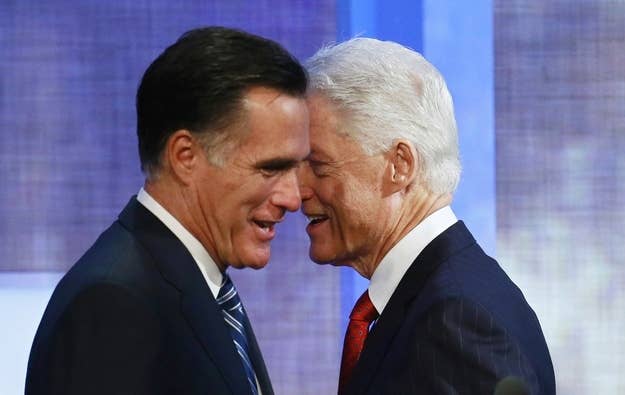
NEW YORK — Republican presidential nominee Mitt Romney laid out his most detailed vision yet Tuesday for American involvement in the developing world, with an emphasis on creating sustainable economies as a way of calming a turbulent Middle East.
As the centerpiece of his address to the Clinton Global Initiative, Bill Clinton's development forum, Romney made the case that peace will only be achieved by injecting a cultural emphasis on work, noting that it was a desire to work sparked the Arab Spring in Tunisia.
"Work builds self-esteem," he said. "It transforms minds from fantasy and fanaticism to reality and grounding."
Romney described the rioters and terrorists who have attacked American Embassies in recent weeks as young and economically oppressed, turning to religious extremism and violence in the absence of career prospects.
"Idle, humiliated by poverty, and crushed by government oppression, their anger and frustration grows," he said.
The solution, he said, was to spread an understanding of the value of work.
"Free enterprise can not only make us off better financially, it can make us better people," he said. "Work will not long tolerate corruption nor quietly endure the brazen theft by government of the product of hard-working men and women."
As president, Romney said said he would direct foreign aide toward private sector partnerships abroad called "prosperity pacts" — an expansion of micro-finance loans to small and medium-sized businesses.
It's a message that has fresh context in the wake of a leaked fundraiser video where the candidate broadly painted Obama voters as government dependents who won't "take responsibility for their lives." (At the same fundraiser, he suggested that the Israeli-Palestinian peace process was a lost cause.) While Romney has said those comments were not "elegantly stated," he did not back away from the basic sentiment, which is a fierce opposition to long-term welfare in most cases, and a belief in individualism and ambition as a means to personal happiness.
It was also a more politic version of a speech he gave at a fundraiser in Israel over the summer, when he blamed Palestine's problems — at least in part — on an inferior "culture."
“And as I come here and I look out over this city and consider the accomplishments of the people of this nation, I recognize the power of at least culture and a few other things," he said in Jerusalem, comparing economic conditions in Israel and the Palestinian territories.

